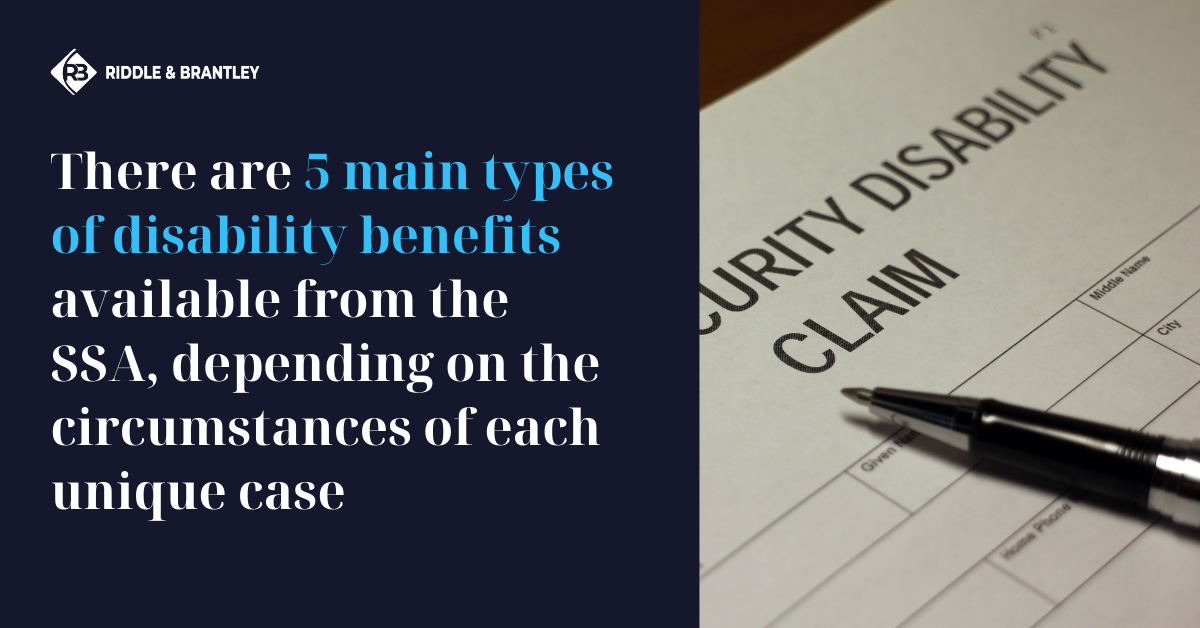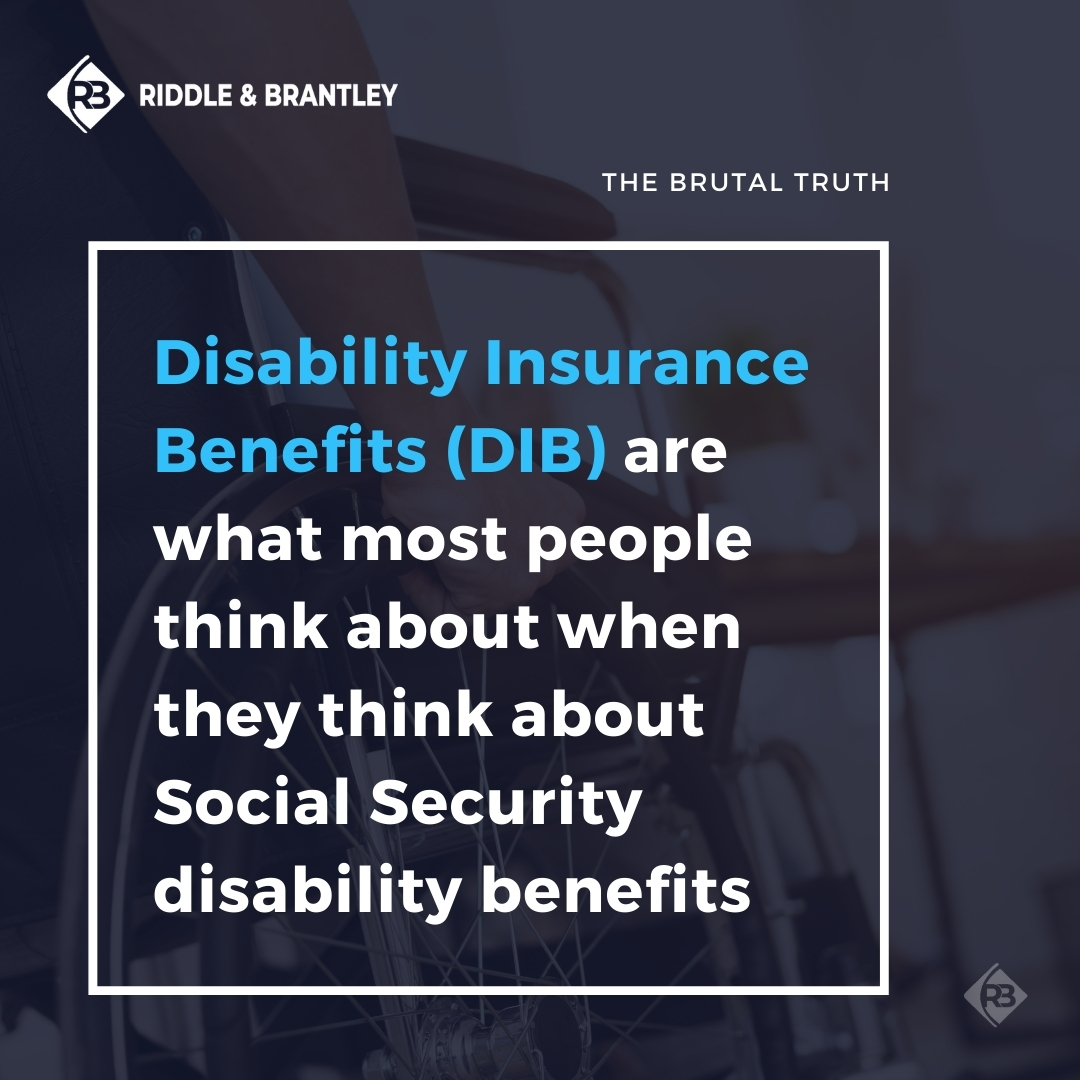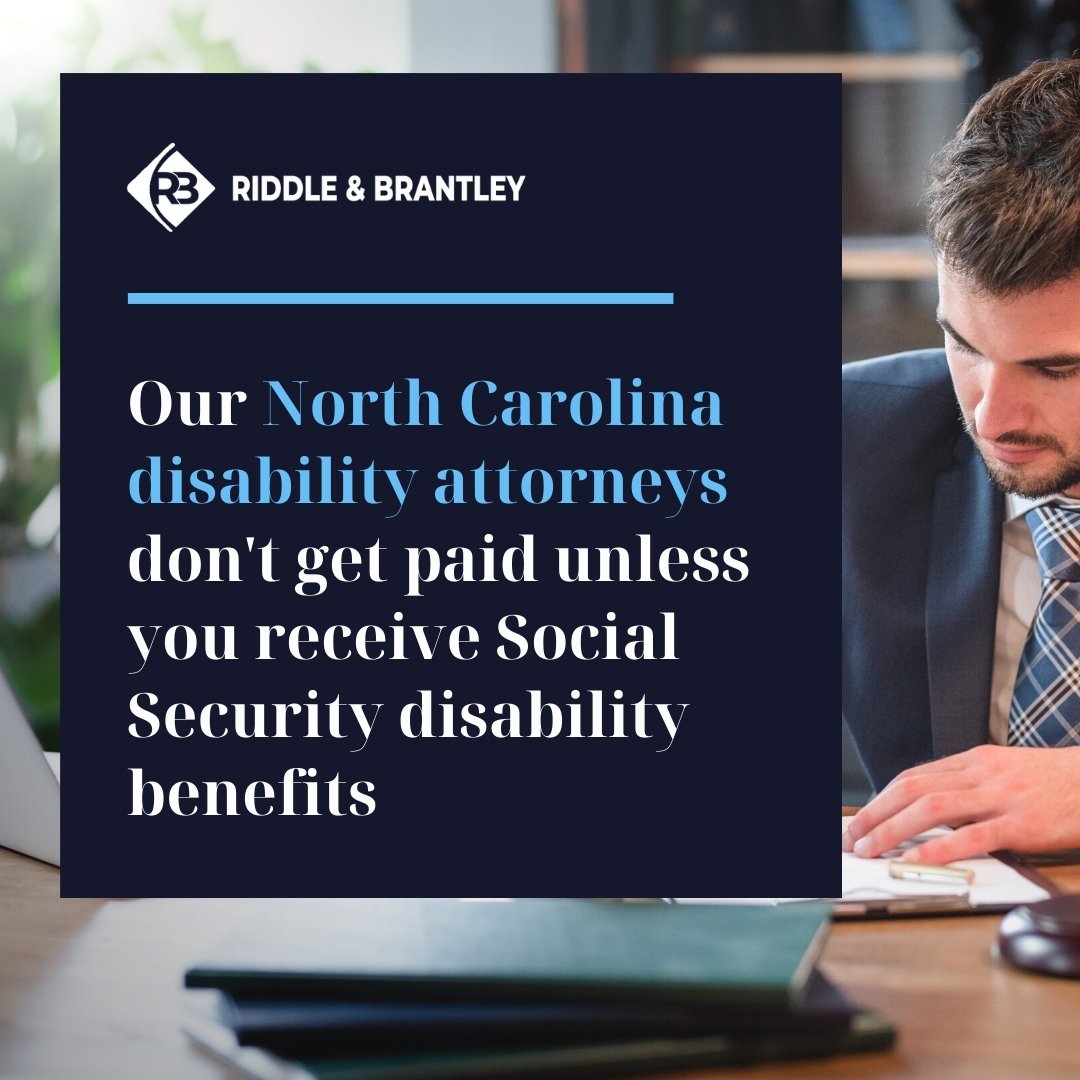“What types of benefits are available for disability?” It’s a question our North Carolina disability lawyers hear a lot from clients. We’ll do our best to answer this important question in this article.

There are many different kinds of disability benefits available from the government, depending on the circumstances in each unique case.
The reality is that most people are unfamiliar with the many different types of benefits available to disabled persons through the Social Security Administration. The SSA provides different types of disability benefits depending on which program you qualify for.
Led by Board-Certified Specialist and disability attorney Scott Scurfield, our disability team knows how to navigate the complicated and sometimes confusing bureaucracy at the SSA to find you the benefits you are entitled to receive.
For a FREE consultation with an experienced North Carolina disability attorney, please call 1-800-525-7111.
The case review is absolutely free and you won’t pay any attorney fees unless we win your case and you receive Social Security disability benefits.
Let’s review your case and see what types of disability benefits you may qualify for. Call 1-800-525-7111 for your free, no-obligation consultation.
Types of Disability Benefits

There are many types of Social Security disability benefits a person may be eligible to receive, even though the medical rules for proving disability are the same for each of them. A finding of disability is required in order to be eligible for any type of benefit.
Once the finding of disability is made, there are five primary programs from which benefits could be provided, which each have non-medical requirements.
The 5 primary programs for disability benefits are:
- Disability Insurance Benefits (DIB) – This is what most people mean when they refer to “disability benefits.” This is the base program under which payroll deductions that show up on pay statements as “FICA” go into the Disability Insurance Trust Fund where they are managed to pay benefits. Once a wage earner has paid a certain amount of these taxes over a certain period of time they are eligible to receive this type of benefit if they become disabled. Prior employment history will determine when the DIB coverage will begin and when it will end. In order to be covered, a person must have worked a minimum of five years within the last ten years before the disability began. There is no household income restriction on these benefits, so even if your spouse is working and able to support you, you are entitled to the benefits. There is also no “means testing” for eligibility; even if you have a million dollars in the bank, if you’ve paid into the system and become disabled, you can still collect benefits.
- Child’s Disability Benefits (CDB) – This Supplemental Security Income (SSI) program provides financial support to children age 18 and under (and with some exceptions up to age 22) who are disabled. Because it is an SSI program, the parent(s) with whom the child resides must meet certain maximum income and property ownership guidelines; if the parent(s) make more than a very modest income or own more than a modest amount of property, the child cannot receive this benefit no matter how severe his or her impairments are. In order for a child to be found disabled, they must have a mental or physical condition (or set of conditions) severely limiting their functionality.
- Disabled Adult Child Benefits (DAC) – These types of benefits are available to a child over the age of 18 who is not married, whose disability began before the age of 22, and who has a parent or parent(s) who are disabled or is deceased but who had, at the time of their death, paid enough into the system to have been insured (see above under DIB).
- Disabled Widow/Widower Benefits (DWB)– This is a type of disability program is intended for widows and widowers of deceased workers who paid into the Security Security system, and who have a disability of their own. In order to qualify for this type of benefit, the surviving spouse must be between the ages of 50 and 59, and have been married for a minimum of ten years to a deceased person who had paid enough into the system to be insured by Social Security at the time of their death. Also, the surviving widow or widower must prove that their own disability started within seven years of their spouse’s death.
- Supplemental Security Income (SSI) – This program can provide a modest monthly income (it maxes out around $800/mo.) to persons with little or no income who own little or no property and who are too disabled to work. The benefits are paid out of general tax revenues, not Social Security taxes. The benefit level is not based upon prior work or the prior work of a family member; it is based on need. The rules for proving disability are the same as those used for DIB. No matter how disabled the individual may be, if their income and property ownership exceeds a certain maximum level, they will not qualify for SSI benefits.
Experienced Disability Lawyers

Our North Carolina disability lawyers are well-versed in each of these types of benefits and we’re ready to talk to you about the benefits which may be available to you.
For a FREE consultation with a disability lawyer, please call 1-800-525-7111.
The consultation is free and you won’t pay any attorney fees unless we win your case or appeal and you receive financial benefits from the SSA.
Call 1-800-525-7111 today for a free consultation by phone, email, text, or video chat. We can even come to you directly if you prefer. However, no in-person meeting is required to get started.
With convenient office locations throughout North Carolina, our lawyers are able to assist clients in these areas and elsewhere needed.
“Without your help, I would not have received my Social Security disability benefits.”
-Charlotte R., Riddle & Riddle client
Call Today for a FREE Case Review
Our team has secured disability benefits for hundreds of deserving North Carolinians. Please call 1-800-525-7111 or complete the fast and easy form below for a FREE consultation.
Justice Counts for North Carolinians with disabilities. Please call today and let’s see how we can help.